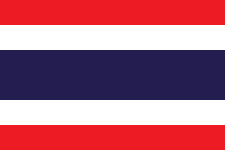“The United States is an Asian-Pacific nation, and we take our enduring interests there very seriously. We know that America’s security and prosperity are closely and increasingly linked to the Asia-Pacific.” So spoke John Kerry, that peripatetic American diplomat. And so finally, if but for one excellent speech, the secretary of state has managed to escape the iron vice of Iraq, Gaza and the Ukraine to point a pivot to Asia, the 21st century’s most significant region.
This honorable gentleman is not happy with all that he sees there, and he has earned the right to say so. Being an honest American doesn’t necessarily mean one has to be an ugly American. As Kerry said: “We will continue to promote human rights and democracy in Asia, without arrogance but also without apology.” In fact, if done with true humility and consistent integrity, this should always be the American contribution.
The former Massachusetts legislator and US presidential candidate, in his speech at the venerable East West Center in Hawaii, expressed great dismay over the political tragedy in Thailand. While he spoke as diplomatically as possible, thankfully the diplomat in his head could not entirely muffle the democrat in his heart. To him, the ugly and evil military coup of May took the immense promise of Thailand and threw it back in the direction of fascism. Kerry: “In Thailand, a close friend and ally, we are disturbed by the setback to democracy and hope it is a temporary bump in the road. We call on the Thai authorities to lift restrictions on political activity and speech, restore civilian rule and return quickly to democracy through free and fair elections.”
Anyone who has ever been privileged to visit Thailand knows it is a gorgeous country populated with amazingly generous and free-spirited people. In this way the junta generals are the worst possible representatives of the Thais. They have been harassing academics, scaring even the mildest critics and launching absolutely ludicrous “Be Happy” programs. Why in the world do they think they have the right to do this? Who elected them?
Kerry bluntly described Thailand as “backsliding” and compared it unfavorably to Asia’s “bright spots.” Kerry didn’t explicitly mention it, but until recently few spots in the region were any brighter than the promise and freshness of Yingluck Shinawatra, the prime minister ousted in May after her party’s landslide victory in the 2011 national election. This successful former Thai businesswoman — the sister of Thaksin Shinawatra, in 2006 ejected by coup — had started her prime ministership strongly, and while she did make some serious mistakes (but who ever doesn’t?) deserved much better than the curt dismissal of a self-anointed military that couldn’t organize a forward march, much less run a complicated civilian government.
Contrast the depressing darkness over Bangkok to the promising light over Jakarta, where its innovative governor prepares to take the presidency after a vigorously contested nationwide election. Indonesia, at the moment, is the greatest positive political-evolution story on the face of the earth. But with the heads of the international media stuck in the ugly mud of the Middle East, not to mention the Ukraine, you would hardly know it.
It is true that electoral democracy will never produce anything approaching political utopia (certainly we in the US know this to be an enormous truth). But the system does have the virtue of offering to every citizen — poor or rich, however dark or light the skin — a Constitutionally embedded role to play in the shaping of the future. Force that Constitution into submission via intimidation by the tank, and you have stared down all hope of political equity.
In fact, income inequality in Thailand ranks as among the highest outside of Africa and Latin America. By contrast, Asian neighbors, including Indonesia, Malaysia and the Philippines, have been working to produce greater equality. Indeed, the governments of Thaksin (2001-2006) and Yingluck (2011-2014) had policies in place that were making a dent in the problem. But those governments are now gone.
People underestimate Thailand’s importance, especially, perhaps, many Thais. It’s not some cracker state in the middle of nowhere. In 1967, the year the Association of Southeast Asian States came together, the founding declaration was signed not in Jakarta or Manila or Kuala Lumpur or in Singapore but in Bangkok. In no small measure one of the globe’s premier multilateral institutions came from a small group of gifted diplomats, including Thanat Khoman, who was to become the Thai foreign minister.
Not too many people know that the country’s population is greater than France, Italy or the United Kingdom. So it’s not surprising people underestimate Thailand’s importance, as even its ruling generals in their Constitutional carelessness do. And rarely do generals anywhere run governments that coddle the interests of anything other than elites (which — yes — will include the generals). Their job is to protect their country, not manage it or ruin it. That is the only job they should arrogate to themselves. – By Tom Plate, in his syndicated column
TOM PLATE, a former editor of the editorial pages of the Los Angeles Times, now Loyola Marymount University’s Distinguished Scholar of Asian and Pacific Studies, is a columnist and journalist in world newspapers. His ‘Giants of Asia’ quartet includes “Conversations with Ban Ki-moon’, ‘Lee Kuan Yew’, ‘Thaksin’ and ‘Mahathir’. His next book is IN THE MIDDLE OF CHINA’S FUTURE (Marshall Cavendish).

